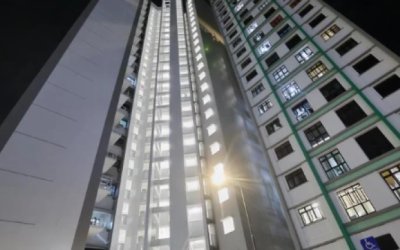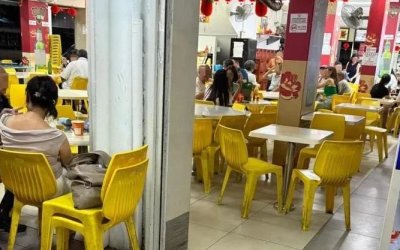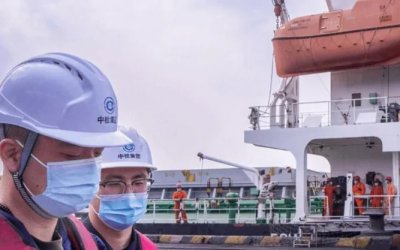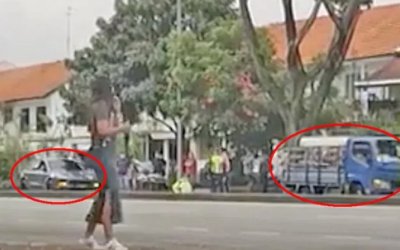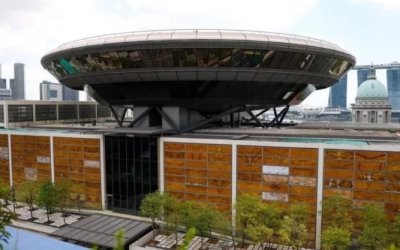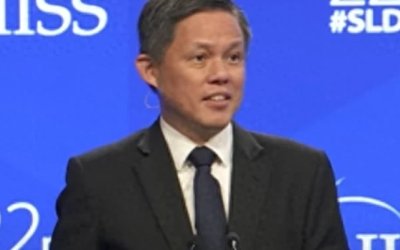The Bill will require designated entities to seek the relevant authority's approval for the appointment of its CEO and Chairperson of its board of directors; and designated operating entities who are also licensees to seek the relevant authority's approval for the appointment of its CEO, Chairperson, as well as all directors of its board.
Lastly, the Bill will introduce controls over operations and resourcing, to ensure that companies are equipped and able to operate their services under all circumstances, including times of crisis and in the event of significant changes within each sector. We propose that designated entities should notify their respective authorities as and when there are material developments or events, so that the relevant authorities are kept aware of events that could materially impede or impair the provision of essential transport services in Singapore and are able to take mitigation measures early and as needed.
While current licensing regimes for each sector may also include notification requirements, this Bill codifies the notification requirements across all transport sectors for designated entities. The Bill will require designated entities to notify the relevant authority of such events, for example, if a designated operating entity outsources a material function in providing essential transport services in Singapore, or if they face material events or legal proceedings that may impair or impede the provision of essential transport services in Singapore. This list of events will be circumscribed.
To help companies comply with these requirements, the relevant authorities will issue a set of advisory guidelines after the Bill is approved by Parliament and comes into effect. These advisory guidelines will provide practical guidance for these notification requirements. We have provided for this by clauses 13, 25, 41 and 55 of the Bill.
Next, the Bill inserts provisions extending the relevant authority's step-in powers, via a Special Administration Order, to cover designated operating entities and licensees across the air, land and sea transport sectors. This is to safeguard service continuity in extreme scenarios and unlikely events, such as where a designated operating entity or licensee becomes unable to provide essential transport services safely and reliably.
Currently, the relevant authorities could issue Special Administration Orders to their licensees, as a safeguard in extreme scenarios. The step-in powers in this Bill are similar in scope, in that they extend to designated operating entities that directly provide essential transport services in Singapore, but are not licensees.
Sir, I wish to assure Members that step-in powers will be exercised as a last resort to deal with extreme scenarios. They are meant to safeguard the provision of essential transport services in Singapore. For example, this could include when a designated operating entity becomes insolvent and unable to pay its debts and this, in turn, jeopardises the continued provision of essential transport services. We will not intervene in the commercial operations and affairs of the entities in the normal course of business.
If we need to use the proposed step-in powers, we will exercise them judiciously and only for the period which they are required for. The new section 33E of the BSI Act, the new section 75 of the CAAS Act, the new section 89B of the MPA Act and the new section 27D of the RTS Act in the Bill update the related provisions in existing Acts. For example, the Bill will provide for the issuance of ancillary directions, to specify the period in which the step-in order will take effect and other relevant conditions to achieve the purposes of the order when step-in powers are exercised.
Finally, business continuity planning requirements. The Bill introduces the power for CAAS to impose requirements for business continuity planning for designated operating entities in the air transport sector. They will not apply to designated equity interest holders. The Bill does not cover these requirements for designated operating entities in the land and sea transport sectors, as we can subject them to similar requirements via licence conditions.
Let me now touch on the general and miscellaneous provisions under the Bill. The Bill will allow the relevant authorities to issue remedial directions for breaches of controls relating to ownership and management appointments, among others. These remedial directions could include directing the disposal of equity interest and removal of key appointment holders, if prior approval was not sought or if conditions of approval were breached.
The Bill will employ the following penalties to enforce the regime. We have specified penalties for the breach of any control, including conditions of approval, relating to ownership, management appointments and notification requirements for certain events, the breach of any remedial direction as well as non-compliance with duties under a Special Administration Order.
The penalties will take reference from penalties under existing Acts, which take into account the operating environments within each sector. The amended section 41 of the BSI Act, the new section 67K of the CAAS Act, the new section 86HD of the MPA Act and the new section 28 of the RTS Act provide for avenues of appeal to the Minister against certain decisions made by the relevant authorities, including the designation of an entity, refusal to grant approvals required for controls over ownership or management appointments and the issuance of remedial directions.
Sir, I would like to highlight that MOT will be moving a Notice of Amendment during the Committee stage to address two drafting changes. First, we seek to amend clause 39 to remove subsection (3) of the new section 86HB of the MPA Act as it is not necessary in view of subsection (2) of the same. Next, we propose to make a technical amendment to clause 19 for consistency with the prevailing legislative drafting style for the numbering of sub-paragraphs.
Mr Deputy Speaker, Singapore’s connectivity is one of our greatest assets and something we must continue to safeguard carefully to protect the interests of Singapore and Singaporeans. We shall do so in a calibrated and targeted manner, by striking a balance between what is useful and practical for our transport sector and minimising the commercial and cost impact on companies and investors. We will continue to work closely with the industry and stakeholders on the implementation of this Bill. Sir, I beg to move.
HQ丨編輯
HQ丨編審
新加坡國會丨來源





